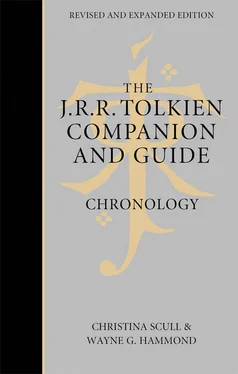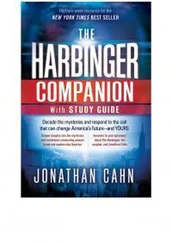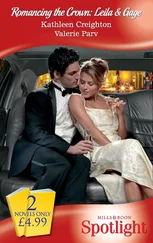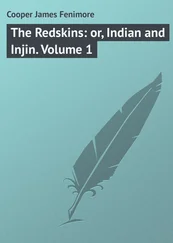26 March 1910 (Easter Saturday)With the permission of Father Francis, Ronald writes a long letter to Edith. This ends with a poem, probably Morning , which he will later date to March 1910 – his earliest dated surviving verse. He encloses two devotional pamphlets, The Stations of the Cross and The Seven Words of the Cross . – At about this time Ronald begins to write original poems in English, in addition to translating poems into Latin as part of the classical curriculum at school. Much of his early poetry celebrates his appreciation of nature and landscape.
5 April 1910Ronald plays in a 1st XV home match against the King’s Shropshire Light Infantry. King Edward’s School wins, 19 to 0. – The School’s annual Open Debate addresses the motion: ‘That the party system has proved itself to be no longer compatible with the sound government of this country.’ W.H. Payton is among those who speak in the affirmative. The motion fails, 20 votes to 30.
6 April 1910The King Edward’s School Musical and Dramatic Society presents the Annual Open Concert at 7.30 p.m. in the Governors’ Board Room. During the programme Ronald’s friend Rob Gilson recites John of Gaunt’s dying speech from Shakespeare’s Richard II .
From 11 April 1910Ronald sees a performance of J.M. *Barrie’s Peter Pan at the Prince of Wales Theatre in Birmingham. He writes in his diary: ‘Indescribable but I shall never forget it as long as I live. Wish E[dith] had been with me’ (quoted in Biography , pp. 47–8). The play is presented for six nights and two matinees beginning 11 April.
May 1910Ronald writes a poem, The Dale Lands .
6 May 1910King Edward VII dies. George V succeeds to the throne.
June 1910Ronald writes a poem, Evening .
12 June 1910Ronald inscribes his Greek edition of The Fifth Book of Thucydides with his name and a Gothic text which he later translated as: ‘I read the words of these books of Greek history in the sixth month of this year; thousand, nine hundreds, ten, of Our Lord: in order to gain the prize given every year to the boy knowing most about Thucydides, and this I inscribed in my books on the twelfth of the sixth (month) after I had already first read through all the words carefully’ (letter to Zillah Sherring, 20 July 1965, Letters , p. 357).
30 June and 2 July 1910Ronald attends the King Edward’s School Athletic Sports at the School Grounds. He comes third in the One Mile Flat Race, Open.
July 1910Ronald takes the examinations for the Oxford and Cambridge Higher Certificate, passing in five subjects: Latin, Greek, Elementary Mathematics, Scripture Knowledge (Greek Text), and History, and also satisfies the examiners in English Essay. – He writes a poem, Wood-sunshine , noteworthy among his earliest verse for its references to ‘fairy things tripping so gay’ and ‘sprites of the wood’, a foreshadowing of later writings ( Biography , p. 47). He will later date another poem, The Sirens , also to this month.
27 July 1910Speech Day and Prize-giving at King Edward’s School, followed by various performances. Ronald is awarded the prize for German, and plays the part of the Inspector in a performance in Greek of The Birds by Aristophanes, for which the King Edward’s School Chronicle will single him out for special praise. Rob Gilson and Christopher Wiseman appear in scenes from Shakespeare’s Henry V . – Hilary Tolkien attends his final day at King Edward’s School. At some time before April 1911 he will be given a post in Walter Incledon’s family business, as a hardware merchant’s clerk.
28 July–6 August 1910Ronald attends camp with the King Edward’s School Officers Training Corps. Sixty-four cadets parade at the School on the morning of 28 July under the command of Captain R.H. Hume before travelling by special train from Snow Hill Station, Birmingham, to *Aldershot in Hampshire. They and cadets from other schools pitch camp on Farnborough Common and spend two days drilling in preparation for an inspection by the Duke of Connaught on the Saturday afternoon. During their field training the cadets are taken in groups to visit the depot of military airplanes and airships in the neighbouring Farnborough. A battery of field artillery is demonstrated to them. During the second week, the cadets are inspected by Field Marshals Lord Roberts and Lord Kitchener. ‘The weather was on the whole good, but on two evenings the rain fell in torrents and nearly washed out the Camp’ (R.H. Hume, ‘O.T.C. Annual Camp, Aldershot, 1910’, King Edward’s School Chronicle n.s. 26, no. 183 (November 1910), p. 74).
Summer 1910Ronald takes a holiday in *Whitby on the northeast coast of England. He makes at least seven drawings of the busy fishing port and the ruined abbey on the cliff above the town, including Whitby, Ruins at West End of Whitby Abbey ( Artist and Illustrator , figs. 9–10), and ‘Sketch of Whitby’ ( Life and Legend , p. 19). – Either this summer or in 1911 he visits his Aunt Jane Neave in St Andrews, *Scotland, where she is Lady Warden of University Hall. While there he draws a view, St Andrews from Kinkell Brae .
Autumn term 1910At King Edward’s School Ronald is now a Prefect, Secretary of the Debating Society, Football Secretary, House Football Captain, and a corporal in the Officers Training Corps, each of which posts has various duties. He is also, with Christopher Wiseman and Rob Gilson, a Sub-Librarian. See note . Another future member of the T.C.B.S., *Sidney Barrowclough, is now among the twenty boys in the First Class. Despite these distractions, Ronald is (or is supposed to be) working hard for his second attempt to gain an Oxford scholarship. – During his last year at school Ronald will discover the Finnish * Kalevala in the English translation by W.F. Kirby.
7 October 1910Ronald makes the opening speech at a meeting of the King Edward’s School Debating Society, in favour of the motion: ‘That this House considers that the Debating Society does more harm than good.’ He accuses the Society of encouraging the growth of punning and draws ‘a harrowing picture of the devastation wrought through this malpractice by members of the Society in Camp at Aldershot’. Among other speakers, Vincent Trought ultimately suggests that a debate precede every meal as an appetizer and offering a ‘sweeping dictum that “this House keeps its members from the ‘Pubs’”’; Rob Gilson explains ‘impatiently that his one and only grievance against the Society was this educational tendency’; R.S. Payton applies ‘his wit for a sentence or so to the Secretary’; and Christopher Wiseman rises ‘distorted and inarticulate with internal merriment’ (‘Debating Society’, King Edward’s School Chronicle n.s. 26, no. 183 (November 1910), pp. 69, 70). The motion fails, 5 votes to 15. See note .
14 October 1910Rob Gilson reads a paper on John Ruskin at a meeting of the King Edward’s School Literary Society.
15 October 1910Ronald plays in a 1st XV home match against the Old Edwardians II. King Edward’s School loses, 6 to 10. See note .
21 October 1910The King Edward’s School Debating Society addresses the motion: ‘This House advocates State Endowment of the Drama.’ Although Ronald is not reported to have made any direct contribution to the debate, C.H. Richards ‘regretted bitterly the weak moment in which he had capitulated to the highwaymanism of the Secretary’ (Ronald) in persuading him to lead the opposition to the motion (‘Debating Society’, King Edward’s School Chronicle n.s. 26, no. 183 (November 1910), p. 70). Rob Gilson, Vincent Trought, and Christopher Wiseman are among the other speakers. The motion fails, 9 votes to 14.
Читать дальше












